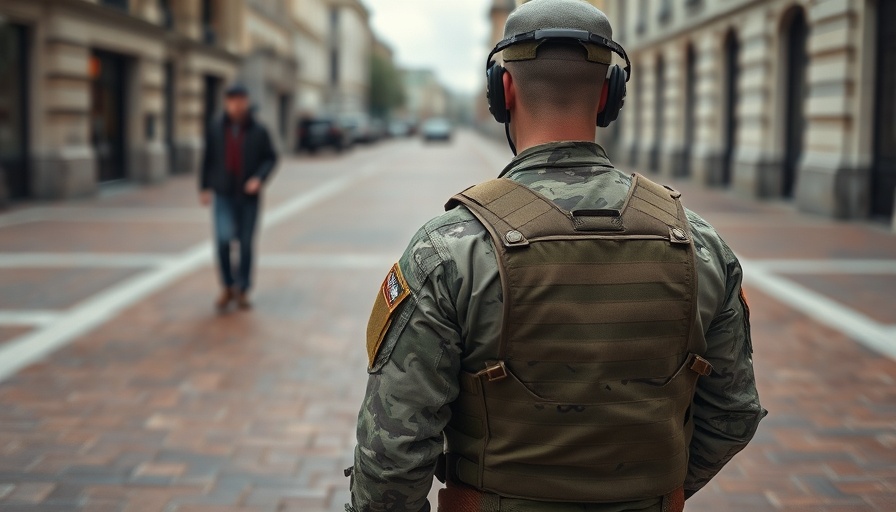
Transforming the Role of National Guard in D.C.: Armament Unveiled
In a surprising decision, some National Guard members stationed in Washington, D.C., will be armed starting Sunday night, marking a significant shift in their operational capabilities. According to military officials, fewer than 50 service members will carry weapons moving forward. This move follows a directive from the Secretary of Defense, highlighting a potentially evolving role for the National Guard in the nation’s capital amidst rising tensions.
The Context of National Guard Intervention in D.C.
Recently, Washington, D.C., has seen increasing levels of scrutiny regarding public safety and crime rates, as President Trump aims to strengthen law enforcement efforts. Almost 2,000 National Guard troops are already present in the city, following Trump's initiative to address what he describes as an “epidemic of crime.” However, despite President Trump's claims, crime has actually been on a downward trajectory in the D.C. area for the past year and a half, raising questions about the necessity and timing of arming guardsmen.
Reactions and Implications of Armed Guards
The decision to arm the National Guard has drawn mixed reactions from local officials and the public. While Trump maintains that these actions create a safer environment, critics argue that the initiative is unnecessary, especially in light of declining violent crime rates. Furthermore, Democrats have voiced their disapproval of Trump’s approach, suggesting it exacerbates tensions rather than easing them.
Rules of Engagement for Armed Personnel
Under this new directive, the guardsmen will operate under the established Rules for the Use of Force, permitting the use of force solely as a last resort and only in response to credible threats of death or serious bodily harm. This stance endeavors to reassure the public that weapons will not be drawn lightly. The task force has predominantly focused on landmark protection and crowd management, rather than direct law enforcement, which has further complicated public perceptions regarding necessity.
A Broader Analysis: Why Armed Guards Might Be Unneeded
It’s essential to consider whether the actions taken by Trump are reactive rather than preventive. Critics emphasize that the presence of armed guards may not eliminate crime—more so, they argue that it could potentially escalate tensions in an already polarized atmosphere. There is an inherent contradiction in deploying military resources to manage civilian life when crime statistics do not justify an intensified state of alert.
Future Predictions: What Lies Ahead for the National Guard
As armed National Guard troops patrol the city streets, there remains an uncertainty regarding how their role could evolve. Will this lead to a more permanent militarized presence, or is this merely a temporary measure to quell immediate concerns? Observers are closely monitoring the situation, as the implications of these armed deployments could shape law enforcement practices across the nation in the long term.
Actionable Insights: How Citizens Can Engage
For residents of D.C. and concerned citizens nationwide, it's crucial to stay informed about local law enforcement initiatives and engage in community discussions around public safety. Understanding the complexities of armed guards in civilian environments can empower citizens to voice their opinions and advocate for responsible governance. Moreover, attending public forums and fostering constructive dialogue with local officials may help navigate this evolving landscape.
As the situation in D.C. continues to unfold, it is essential for citizens to remain vigilant and explore avenues for community engagement to influence how their neighborhoods are policed. To make your voice heard on this pressing issue, consider reaching out to your local representatives or participating in community forums focused on public safety and crime prevention.
 Add Element
Add Element  Add Row
Add Row 



Write A Comment